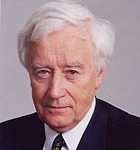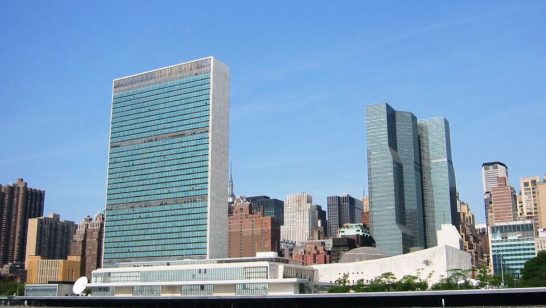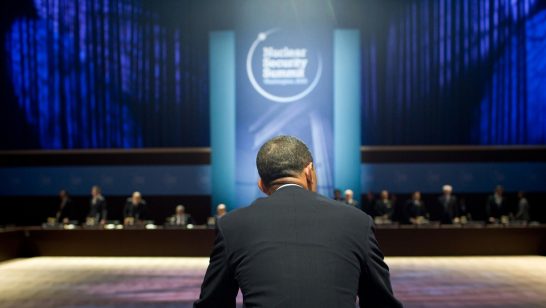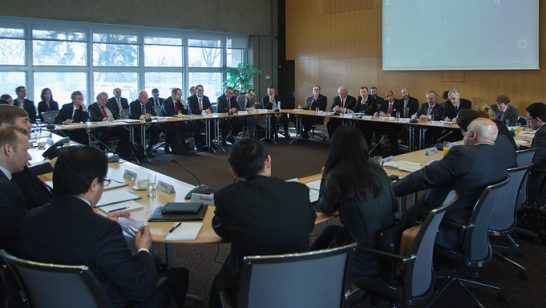
The five Nuclear Weapon States (NWS) China, France, Russia, the United Kingdom and the United States, should recognize that building relations on the principle of mass destruction is primitive and dangerous. This principle should not be allowed to constitute the basis for future relations between them. The use of nuclear weapons is a matter of moral and humanitarian law. A nuclear weapons doctrine of deterrence should therefore not be the base for organizing nuclear weapons arsenals. New doctrines guiding the use of nuclear weapons should be considered, first and foremost in a joint context between the US and Russia.
Maintaining strategic weapons on high alert means that the risk for an accidental launch of a nuclear attack is significant, and that the threat of massive casualties from an unintended attack is real. Especially dangerous is a nuclear weapons doctrine of launch on warning in situations when uncontrolled events can be misinterpreted as a genuine nuclear attack. Therefore, the US and Russia should take their strategic nuclear weapons off high alert as a matter of great urgency, thus reducing the risk of accidental launch. They should without delay enter into a dialogue on the establishment of increased warning and decision time. Furthermore, Russia, the United States and other nuclear weapons states should agree to separate warheads from delivery vehicles.
NWS should undertake not to attack non-nuclear weapon states (NNWS) with nuclear weapons. They need also to adopt a no-first-use doctrine. They should follow up such a policy by taking the initiative to negotiate and agree upon an international treaty or a protocol prohibiting the use of nuclear weapons (similar to the Geneva Protocol 1925 prohibiting the use of chemical weapons).
Concerning tactical nuclear weapons in Europe (American and Russian), it must be recognized that they are more a security risk both to NATO and Russia than a security asset. One cannot be sure that terrorists cannot take control over tactical weapons, and only a handful of them would be enough to cause catastrophic destruction. The utility of maintaining such weapons is therefore highly questionable and does not support the retention of them in Europe. Accordingly, the tactical nuclear weapons in the NATO arsenals should be withdrawn from Europe to the United States without delay. It should also be in Moscow’s interest to withdraw correspondingly all their deployed tactical weapons to controlled storage sites east of the Ural Mountains. NATO and Russia should develop the necessary mutual transparency for these operations.
Finally, the NWS should jointly take the lead to initiate negotiations on a Fissile Material Cut-off Treaty (FMCT) within the context of the Conference on Disarmament. They should not try to hide behind an obstructionist non-NPT state, Pakistan, which could easily be convinced (by the USA and China) to drop its objections. In support of such an initiative, the NWS themselves should demonstrate transparency as regards their own holdings of non-weaponised fissile material and make them accessible for IAEA safeguards inspections like all other states. In parallel, the NWS in the Conference on Disarmament (five plus India and Pakistan) should agree to cease production of fissile material with the long-term ambition to initiate talks on an agreement towards starting the process of destruction of their own stockpiles of fissile material.
The support for the NPT by many State Parties is generally eroded by the lack of significant progress on the implementation of Article VI and the major goal of total elimination of nuclear weapons as spelled out in the preamble part of the Treaty. The New START Treaty is an important exception, but no further steps are even indicated to be on the horizon. If the NPT collapses and some major non-nuclear states decide to acquire the weapon, all other states will be losers – probably nobody more so than the nuclear weapon states themselves.
As the four-week-long meeting in New York opens, there might be space at some point for the President of the Review Conference to encourage a focused dialogue between a small group of states from all the continents (not coveted by nuclear weapon states’ nuclear umbrella, in the style of the New Agenda initiative) and the five nuclear weapon states. A limited set of concrete steps, hopefully taking into account some of the suggestions outlined above, can thus be elaborated to be adopted by the Review Conference at the end of May.
The opinions articulated above represent the views of the author(s), and do not necessarily reflect the position of the European Leadership Network or any of its members. The ELN’s aim is to encourage debates that will help develop Europe’s capacity to address the pressing foreign, defence, and security challenges of our time.



